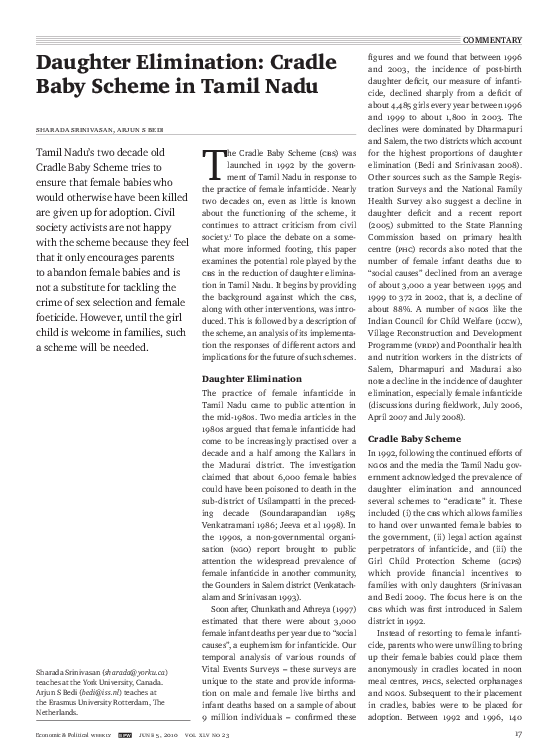
Resources
Daughter Elimination: Cradle Baby Scheme in Tamil Nadu
Resource date: 2010
Author: UNFPA
Publisher: UNFPA
Tamil Nadu’s two decade old Cradle Baby Scheme tries to ensure that female babies who would otherwise have been killed are given up for adoption. Civil society activists are not happy with the scheme because they feel that it only encourages parents to abandon female babies and is not a substitute for tackling the crime of sex selection and female foeticide. However, until the girl child is welcome in families, such a scheme will be needed.
The Cradle Baby Scheme (CBS) was launched in 1992 by the government of Tamil Nadu in response to the practice of female infanticide. Nearly two decades on, even as little is known about the functioning of the scheme, it continues to attract criticism from civil society.1 To place the debate on a somewhat more informed footing, this paper examines the potential role played by the CBS in the reduction of daughter elimination in Tamil Nadu. It begins by providing the background against which the CBS, along with other interventions, was introduced. This is followed by a description of the scheme, an analysis of its implementation the responses of different actors and implications for the future of such schemes.